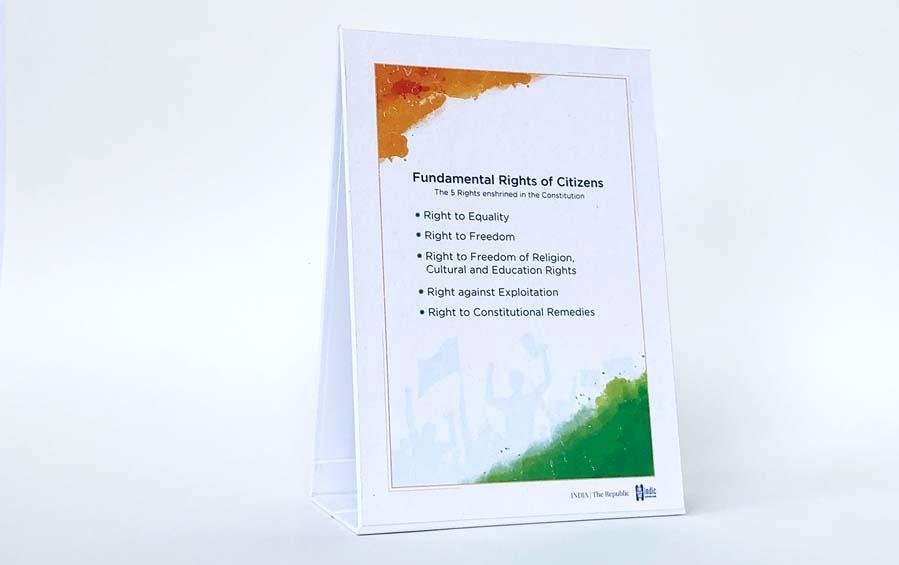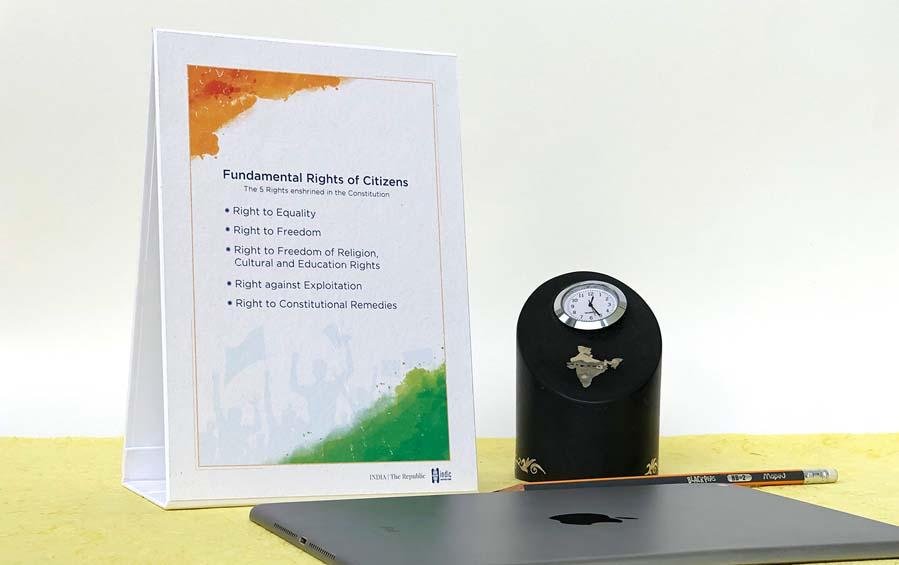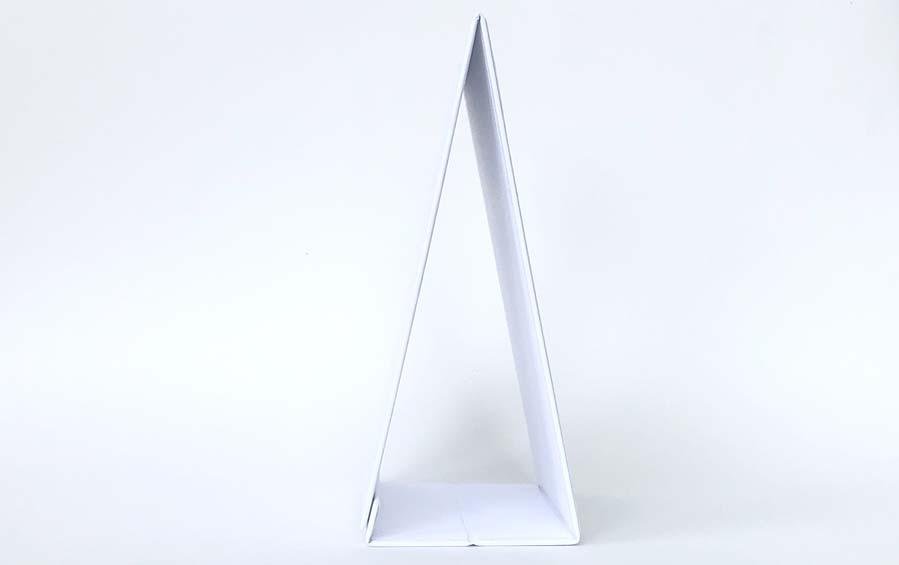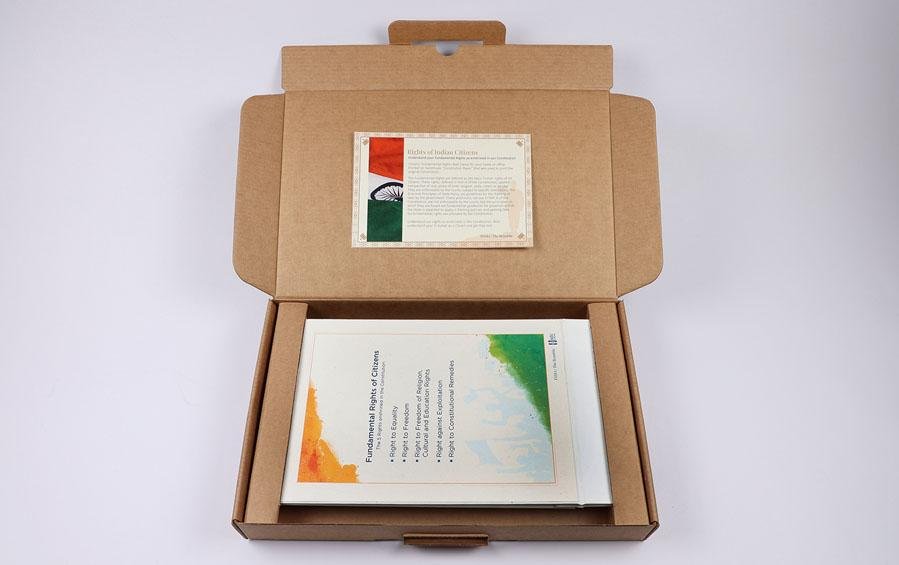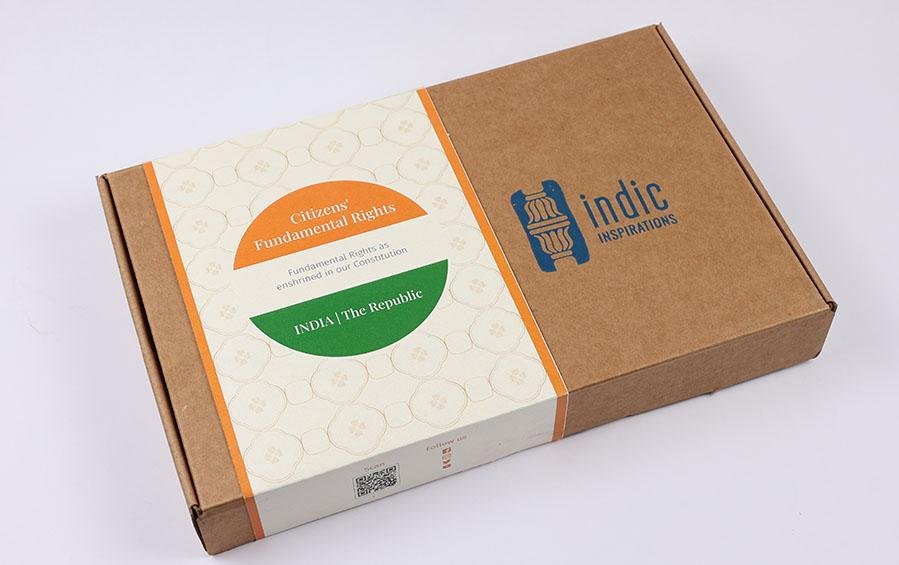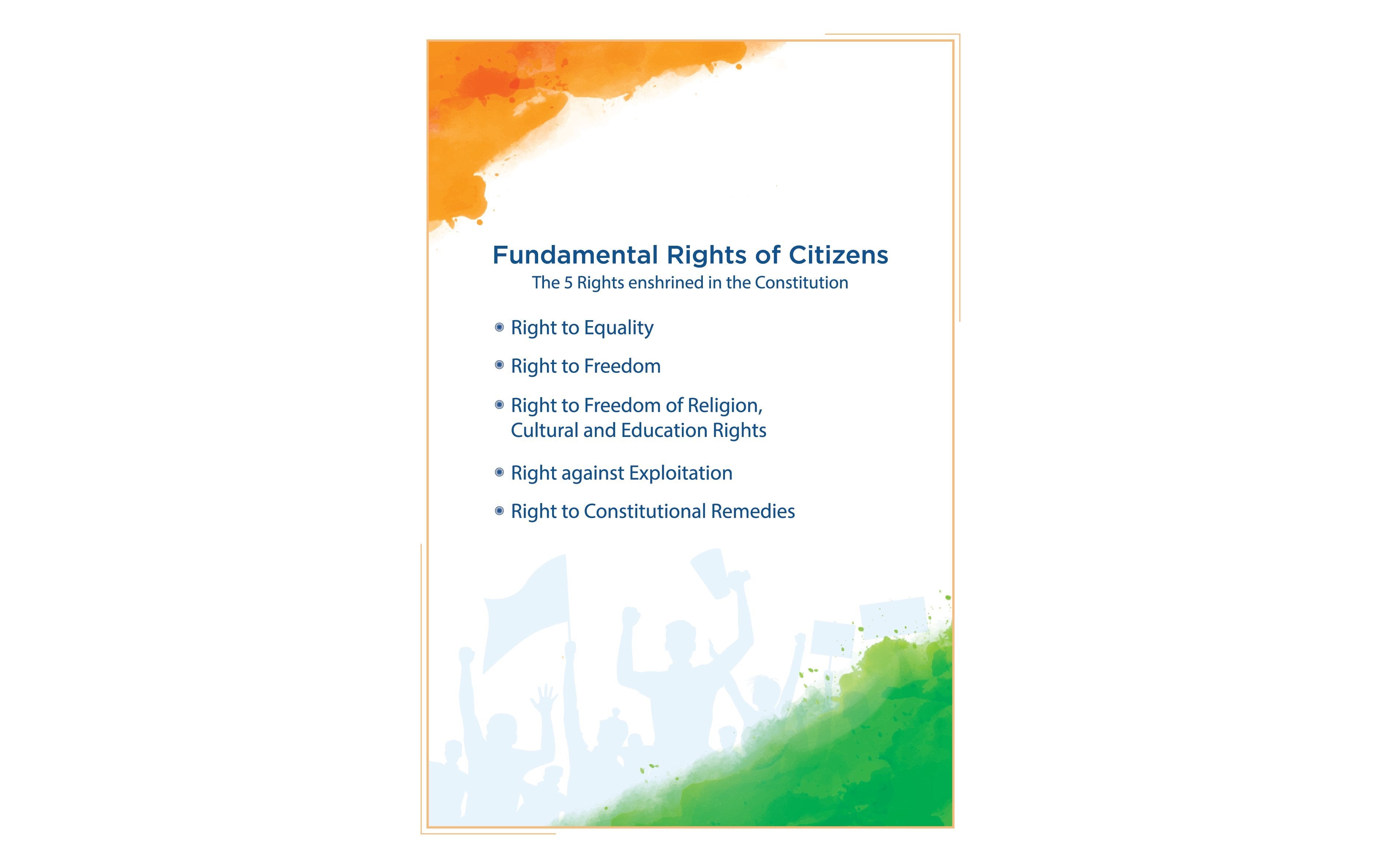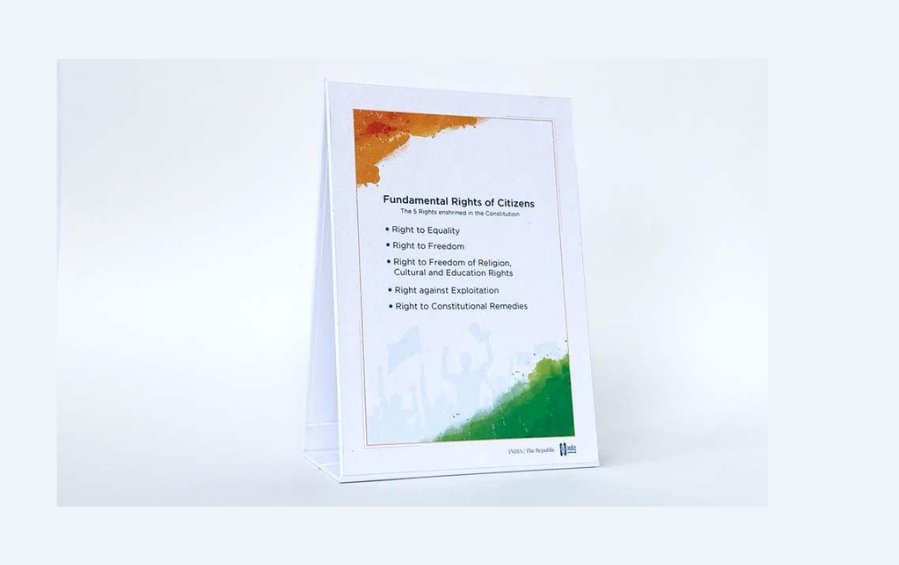Citizens' Fundamental Rights Desk Plaque
Citizens' Fundamental Rights Desk Plaque for your home or office to give people a taste of how the Fundamental Rights in the original ‘Constitution of India’ looked.
- Fundamental Rights Desk Plaque professionally printed with sharp, vivid designs in India's colours
- Desk Plaque made of Kappa Board (cardboard) with Printing on Original Constitution Paper - that was used to print the original constitution, sourced from the Handmade Paper Institute in Pune that was setup by K B Joshi in 1940, with the blessings of Mahatma Gandhi
The Fundamental Rights are defined as the basic human rights of all citizens. These rights, defined in Part III of the Constitution, applied irrespective of race, place of birth, religion, caste, creed, or gender. They are enforceable by the courts, subject to specific restrictions. The Directive Principles of State Policy are guidelines for the framing of laws by the government. These provisions, set out in Part IV of the Constitution, are not enforceable by the courts, but the principles on which they are based are fundamental guidelines for governance that the State is expected to apply in framing policies and passing laws. Six fundamental rights are provided by the Constitution.
Constitution as a work of Art - The Indian Constitution is not only a consolidation of laws and regulations. But it is a wonderful repository of the art. It gives us a sense of India’s rich tradition and culture. It’s a glimpse into our cultural heritage. Adorning the Constitution with pictures depicting Indian culture and heritage was a task entrusted to Nandalal Bose and his 40 students from Shantiniketan. Bose decorated several pages of the first manuscript with stylish borders, headers, and backdrops. He even embossed complex patterns on the edges and made the covers in gold. These embossments are reminiscent of the Ajanta murals.
The calligraphy in the book was done by Prem Behari Narain Raizada and several students of Shantiniketan worked on the borders that frame each page.
Each part of the Constitution begins with a depiction of a phase or scene from India’s national history. The artworks represent various periods in Indian history, including the Vedic Period, Mohenjodaro in the Indus Valley, the Gupta and Maurya empires as well as the Mughal era.
Get this and understand our rights as enshrined in the Constitution. Also understand your 11 Duties as a Citizen and get that too!
To know more about the magnificent work of decorating the Indian Constitution check out Republic of Art: The Constitution as an Illustrated History of India written by The Heritage Lab (THL) .
The original of the Constitution book is kept in a special helium-filled case in the Library of the Parliament of India. But you can read the Constitution of India (Original copy) in digital format here (Source: Rare Book Society of India, Photolithographed at the Survey of India Offices, Dehra Dun, India - 1950)
Check out our Unique INDIA | The Republic Collection.
